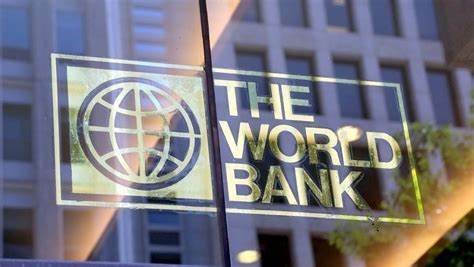According to data from the World Bank, low-skilled Nigerians who immigrated to the US had a 1,500% gain in income.
This was said in The World Development Report 2023: Migrants, Refugees, and Societies, which was posted on the World Bank website on Tuesday.
According to the survey, individuals who relocated from low-income to high-income nations stand to benefit the most from migration.
It stated, “The potential gains are highest for people who move from low- to high-income countries. The labour demand at the destination also shapes outcomes. Gains depend on migrants’ skills, gender, age, and language ability. Although the absolute gains are larger for high-skilled workers than for low-skilled workers, low-skilled workers experience a multifold increase in their income as well.
“For example, low-skilled Yemenis and Nigerians moving to the United States increase their earnings by about 15 times. The gains achieved by low-skilled workers are higher when they move from a society with high socioeconomic inequalities to a country with fewer inequalities and where the difference in wages between low- and high-skilled workers is lower.”
The largest gains for low-skilled migrants came from Yemen (over 1,500%), Nigeria (nearly 1,500%), and Egypt (almost 1000%), according to a graph displaying the growth.
The financial expenses of shifting, particularly for the low-skilled, were shown to occasionally partially balance salary benefits.
Read the report:
“Migrants incur a range of expenses before their departure, from the job information and job matching fees they pay to intermediary agents to the regulatory compliance or documentation fees (for a visa/ sponsorship, medical tests, and security clearance), transportation costs, and pre-departure training costs they must pay. For low-skilled migration, these costs tend to be borne by the workers, thereby contravening the principles of fair recruitment. These costs tend to increase with the duration of contracts, and they limit the ability of many low-skilled workers to benefit from migration opportunities.”
Furthermore, it was mentioned that Nigeria is a significant migration hub, with 1.7 million emigrants and about 1.3 million immigrants calling Nigeria home.
The study also showed that households in Nigeria that receive remittances spend more on agrochemicals and planting supplies, and their farms produce more.
Remittance inflows into Nigeria, however, soared by almost 10 times in a single year before declining, despite the fact that economic fundamentals indicate they should have increased constantly.
The research also stated that with over 3.2 million IDPs in Nigeria, Nigeria and nine other nations account for more than two-thirds of the 59.1 million total number of internally displaced people.
The second most populous nation in the world after India, Nigeria, is predicted to grow from 213 million to 791 million people by the end of the century, despite a reduction in fertility rates from 6.4 to 5.1.





